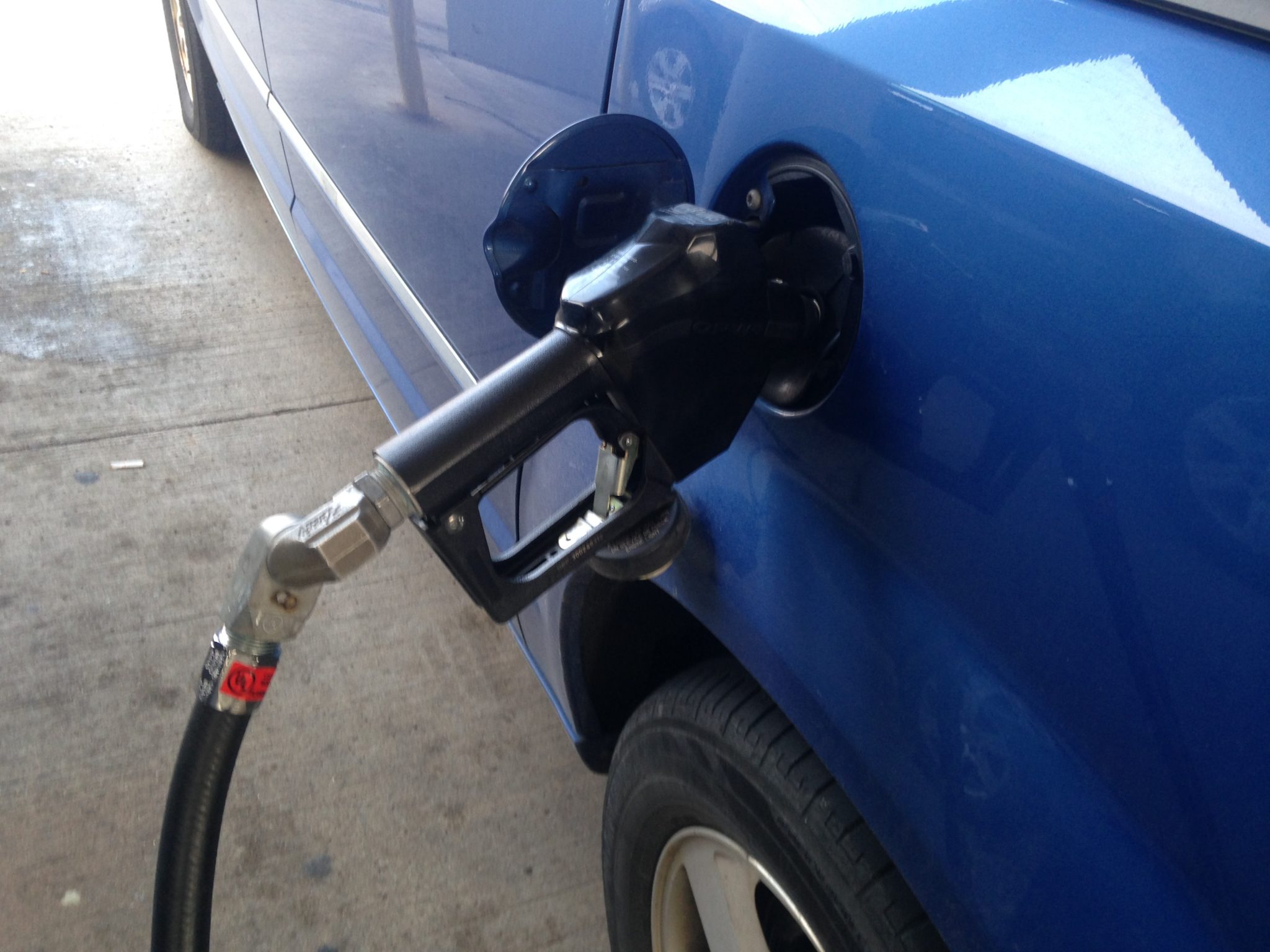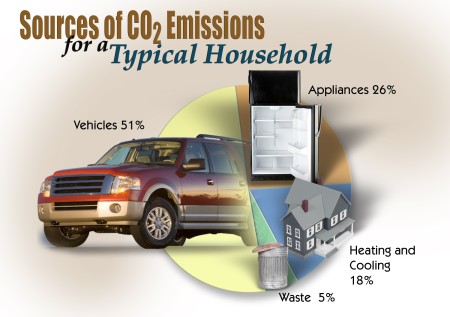Fight Over Fuel Economy Puts Detroit Automakers in a Pickle
General Motors, Ford, and others sent a letter to the White House and California, urging them to resolve a dispute over fuel efficiency rules.

Automakers — including Detroit’s “big three” — are caught in the middle of a fight over fuel economy.
On one side is the Trump administration, which is trying to roll back fuel efficiency standards set by the Obama administration. On the other is the state of California, which has its own standards. When Congress passed the Clean Air Act in 1963, it allowed the Golden State to enforce stricter air pollution rules because smog was such a problem, especially in Los Angeles. Today, if a car manufacturer wants to sell a vehicle in California, it must comply with the state’s fuel efficiency and air quality regulations.

Nick Schroeck is the director of clinical programs at the University of Detroit Mercy School of Law. He says automakers apply the tougher standard to everything they sell nationwide.
“You wouldn’t want to have different designs of cars across the country, because that would be a challenge from an engineering and manufacturing perspective,” Schroeck says.
President Trump wants to strip California’s authority to set its own fuel standards. He’s also trying to roll back fuel economy standards enacted under President Obama. Those rules call on car companies to reach a fleet-wide average of 53 miles per gallon by 2026. Industry leaders want a single standard nationwide, and have written to Trump and California Gov. Gavin Newsom, urging them to resolve their dispute.
Schroeck says until recently, automakers seemed willing to go along with the Obama guidelines, even though it would raise the price of their products.
“In order to do the additional design and engineering, using lighter materials such as aluminum instead of steel, the sticker price of cars would go up.” — Nick Schroeck.
By contrast, President Trump has said Americans don’t want to pay that price, and prefer to buy bigger cars, trucks, and SUVs. Environmentalists push back, saying that rolling back fuel economy rules would create more pollution, and make climate change worse.
The U.S. House Energy and Commerce Committee has scheduled hearings on the Trump administration’s proposal to freeze fuel efficiency standards.
Click on the audio player to hear the conversation with WDET’s Pat Batcheller, and read excerpts from the Q&A, edited for length and clarity, below.
WDET: Why does California have different fuel economy rules?
Nick Schroeck, UDM law professor: The Clean Air Act allows California to set its own standards. Back in the 1960s, the state was dealing with horrible air pollution and smog in Los Angeles. Because it’s a very large and wealthy state, people there buy a lot of cars. If automakers want to sell cars in California, they have to meet the state’s emission standards, so they’ll often just build them to meet those standards nationwide. It’s such a big market, you wouldn’t want to have different designs of cars across the country, because that would be a challenge from an engineering and manufacturing perspective. This dispute here is that California is trying to stick with these standards that were set during the Obama administration. The Trump administration is trying to roll those back.
So what are those standards? The goal is 53 miles per gallon fleet-wide. Depending on all the different types of vehicles they build, they would have to meet that average fuel economy across their fleets. You put together all the cars and trucks they manufacture and come up with one average. The idea is that we’d be forcing improvements in fuel efficiency over time, and hit that target by 2026. What’s interesting is that all of the automotive companies, at least the domestic ones, were on board with those standards during the Obama administration. Now, the Trump administration says it wants to roll that back and help the automakers’ bottom line. There’s a bit of a disconnect here.
Were those standards too ambitious? It will make cars more expensive. I don’t know if ambition’s the right word, but it certainly will be costly. In order to do the additional design and engineering, using lighter materials such as aluminum instead of steel, the sticker price of cars would go up. The Trump administration argues that Americans want bigger cars, trucks, and SUVs and don’t want to pay more for higher fuel economy. Then you’ve got folks on the environmental side who say regardless of the cost, we need to get a better handle on fuel economy because we’re contributing to climate change.

